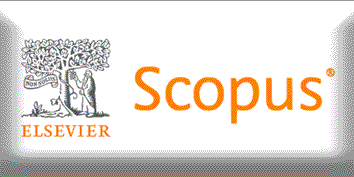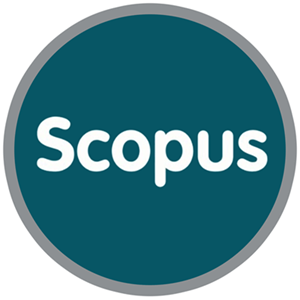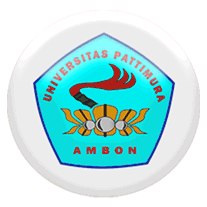GAME THEORY APPLICATION ON ONLINE TRANSPORTATION COMPANY AND DRIVER INCOME LEVELS DURING THE PANDEMIC
Abstract
Online motorcycle taxi drivers are a group of people who are economically affected by the Covid-19 pandemic. This study aimed to provide a balanced choice strategy for drivers and companies. Game theory was applied to conflict of interest situations as a research method. Choices for online transportation companies and drivers are analyzed and arranged in a payoff table until they reach the saddle point. Simulation software as an illustration of a balanced model. This research resulted in driver diligence and incentive strategies as optimal strategies for drivers and companies. If drivers improve performance by choosing a driver diligence strategy, the driver's expectations of getting incentives will be more realistic. Meanwhile, for the company, when the driver's diligence increases, the choice of providing incentives will provide balanced benefits as well.
Downloads
References
B. Rahmadhian et al., “Aplikasi Pemesanan Ojek Online Berbasis Android,” ["Android-Based Online Ojek Ordering Application"] J. Inform. Polinema semua, vol. 3, no. November, pp. 60–64, 2016.
H. Hartanto and N. Tajsgoani, “Dualisme Pengaturan Ojek Online Angkut Penumpang dalam Pembatasan Sosial Berskala Besar (PSBB) di Jakarta,” [“Dualism in the regulation of online motorcycle taxis to transport passengers in large-scale social restrictions (PSBB) in Jakarta"] Al-’Adl, vol. 13, no. 2, 2020, doi: 10.31332/aladl.v13i2.1860.
H. S. Putri and A. Diamantina, “PERLINDUNGAN HUKUM TERHADAP KESELAMATAN DAN KEAMANAN PENGEMUDI OJEK ONLINE UNTUK KEPENTINGAN MASYARAKAT,” [“LEGAL PROTECTION OF THE SAFETY AND SECURITY OF ONLINE OJEK DRIVER FOR THE INTEREST OF THE COMMUNITY"] J. Pembang. Huk. Indones., vol. 1, no. 3, 2019, doi: 10.14710/jphi.v1i3.392-403.
M. I. Farouqi, I. Aknuranda, and A. D. Herlambang, “Evaluasi Usability pada Aplikasi Go-Jek Dengan Menggunakan Metode Pengujian Usability,” [“Usability Evaluation on the Go-Jek Application Using Usability Testing Methods"] J. Pengemb. Teknol. Inf. dan Ilmu Komput., vol. 2, no. 10, 2018.
M. Amin and Bhismoadi Tri Wahyu Faizal, “Kedudukan Mitra Pengemudi Ojek Online dalam Perjanjian Kemitraan (Studi Kasus Akuisisi Uber oleh Grab),” [“The Position of Online Ojek Driver Partners in the Partnership Agreement (Case Study of Uber Acquisition by Grab)"] Al-Huquq J. Indones. Islam. Econ. Law, vol. 3, no. 1, 2021, doi: 10.19105/alhuquq.v3i1.4315.
R. R. Prananda and Z. Aidi, “Tinjauan Yuridis Kedudukan Pengemudi Transportasi Online Dalam Perjanjian Kemitraan Dengan Perusahaan Penyedia Aplikasi Transportasi Online,” [“Juridical Review of the Position of Online Transportation Drivers in Partnership Agreements with Online Transportation Application Provider Companies"] Law, Dev. Justice Rev., vol. 2, no. 2, 2019, doi: 10.14710/ldjr.v2i2.6139.
E. Ratnawati, “Perlindungan Hukum Terhadap Pengemudi Ojek On line Akibat Kecelakaan Dalam Mengoperasikan Kendaraannya,” ["Legal Protection Against Online Ojek Drivers Due to Accidents in Operating Their Vehicles"] Trijurnal Lemlit Trisakti, vol. 2, 2019.
R. Y. A. Pratama and H. Koesyanto, “Kejadian Kecelakaan pada Pengemudi Ojek Online,” [“Accidents to Online Ojek Drivers"] HIGEIA (Journal Public Heal. Res. Dev., vol. 4, no. Special 1, 2020.
Z. Khalid, “ANALISIS JURIDIS KEDUDUKAN PERJANJIAN KEMITRAAN ANTARA PENGEMUDI JASA ANGKUTAN ONLINE DAN PERUSAHAAN PROVIDER DITINJAU DARI ASPEK HUKUM KEPERDATAAN,” [“JURIDIC ANALYSIS OF POSITION OF PARTNERSHIP AGREEMENT BETWEEN ONLINE TRANSPORTATION SERVICE DRIVERS AND PROVIDER COMPANIES REVIEWING FROM CIVIL LAW ASPECTS"] J. Huk. Kaidah Media Komun. dan Inf. Huk. dan Masy., vol. 18, no. 3, 2019, doi: 10.30743/jhk.v18i3.1207.
J. R. S. Cristóbal, “The use of game theory to solve conflicts in the project management and construction industry,” Int. J. Inf. Syst. Proj. Manag., vol. 3, no. 2, 2015, doi: 10.12821/ijispm030203.
M. A. H. Ashour, I. A. H. Al-Dahhan, and S. M. A. Al-Qabily, “Solving game theory problems using linear programming and genetic algorithms,” in Advances in Intelligent Systems and Computing, 2020, vol. 1018, doi: 10.1007/978-3-030-25629-6_39.
N. Ž. Hrustek, N. Perši, and D. Kliček, “Game theory in solving conflicts on local government level,” Croat. Oper. Res. Rev., vol. 19, no. 1, 2020, doi: 10.17535/crorr.2020.0007.
J. Ding, “A Study of Construction Project Conflict Management Based on Evolutionary Game Theory,” 2011.
A. S. Barough, M. V. Shoubi, and M. J. E. Skardi, “Application of Game Theory Approach in Solving the Construction Project Conflicts,” Procedia - Soc. Behav. Sci., vol. 58, 2012, doi: 10.1016/j.sbspro.2012.09.1145.
W. P Fox, “Applied Game Theory to Improve Strategic and Tactical Military Decisions,” J. Def. Manag., vol. 6, no. 2, 2016, doi: 10.4172/2167-0374.1000147.
Y. Zhou, Y. Tao, Z. Li, and L. Yang, “Energy-Efficient Clustering Routing Algorithm Based on Evolutionary Game Theory for Wireless Sensor Networks,” Chinese J. Sensors Actuators, vol. 33, no. 3, 2020, doi: 10.3969/j.issn.1004-1699.2020.03.019.
P. E. Latumeten, “REPOSISI PEMBERIAN KUASA DALAM KONSEP ‘VOLMACHT DAN LASTGEVING’ BERDASARKAN CITA HUKUM PANCASILA,” ["REPOSITION OF GRANTING OF POWER IN THE CONCEPT OF 'VOLMACHT AND LASTGEVING' BASED ON THE INTELLIGENCE OF THE PANCASILA LAW'] J. Huk. Pembang., vol. 47, no. 1, 2017, doi: 10.21143/jhp.vol47.no1.133.
Authors who publish with this Journal agree to the following terms:
- Author retain copyright and grant the journal right of first publication with the work simultaneously licensed under a creative commons attribution license that allow others to share the work within an acknowledgement of the work’s authorship and initial publication of this journal.
- Authors are able to enter into separate, additional contractual arrangement for the non-exclusive distribution of the journal’s published version of the work (e.g. acknowledgement of its initial publication in this journal).
- Authors are permitted and encouraged to post their work online (e.g. in institutional repositories or on their websites) prior to and during the submission process, as it can lead to productive exchanges, as well as earlier and greater citation of published works.






1.gif)



